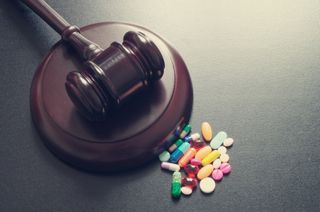NHS to pilot digital checks to clamp down on prescription fraud
Real-time verification and data sharing tools will help pharmacists tackle £256m prescription fraud

The NHS will deploy a new digital system to crack down on prescription fraud in England, which is said to be costing the health service 256.1 million per year.
The NHS Counter Fraud Authority (NHSCFA) will benefit from a raft of new tools in a pilot next year that will aim to half the level of prescription fraud within five years. Under new plans, patients claiming free prescriptions will face checks before being given their medicine.
Under the current system patients who present a certificate, or sign the back of the prescription form to say they are exempt from charges, are verified by the NHS Business Services Authority (NHSBSA) after the prescription is issued.
"Those who abuse the NHS and choose to line their own pockets with money that should be spent on patients and frontline care will no longer have anywhere to hide," said the secretary of state for health and social care Matt Hancock MP.
"We're determined to make sure every penny of the extra funding we are giving the NHS as part of our long-term plan is used to benefit patients. Our message is clear: the NHS is not an easy target, so if you try to steal from it you will face the consequences."
NHSCFA will benefit from a raft of capabilities including real-time checking of patients' eligibility for free prescriptions, as well as data-sharing with NHSBSA to spot fraudulent activity patterns. There will also be collaboration between these organisations, and Cifas, a leading fraud prevention body which routinely shares data with and between public sector bodies.
But the move has come under fire by health experts, who say the entire implementation of a digital checks system, as well as the costs and staffing involved, can be avoided by making prescriptions free in England, as they are in Wales and Scotland.
Get the ITPro. daily newsletter
Receive our latest news, industry updates, featured resources and more. Sign up today to receive our FREE report on AI cyber crime & security - newly updated for 2024.
"If people have their medicines then their conditions are under control, and it's less likely they'll be in hospital afterwards," said the chair of the board for the Royal Pharmaceutical Society in England Sanra Gidley, speaking with BBC Breakfast.
"What if the computer says no? This is a real dilemma. Because sometimes somebody has free prescriptions legitimately - they've got a medical exemption - they're something like a diabetic, they might forget to renew it, computer says no, you're not going to deny a diabetic their insulin, for example.
"This is potentially fraught with problems and we can't get the NHS systems talking to each other at the moment, so how the secretary of state thinks he's going to manage it for the Department for Work and Pensions (DWP) and other agencies when they can't even get Universal Credit (UC) right is slightly mystifying."
The NHS' fraud prevention arm focuses on eradicating bribery, corruption and theft within the UK's health service, which cost approximately 1.25 billion in 2016/17. Prescription fraud represents just a fifth of this.
Under its 2017-2020 strategy, the organisation will transition to become 'digital by default', through implementing technological innovation and boosting digital skills. Moreover, NHSCFA aims to develop a proactive approach to data acquisition and analysis, and ensure data analytics informs business priorities.

Keumars Afifi-Sabet is a writer and editor that specialises in public sector, cyber security, and cloud computing. He first joined ITPro as a staff writer in April 2018 and eventually became its Features Editor. Although a regular contributor to other tech sites in the past, these days you will find Keumars on LiveScience, where he runs its Technology section.




